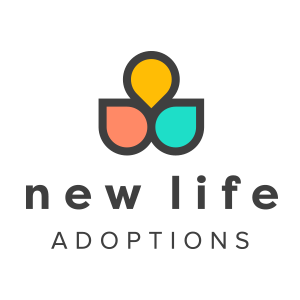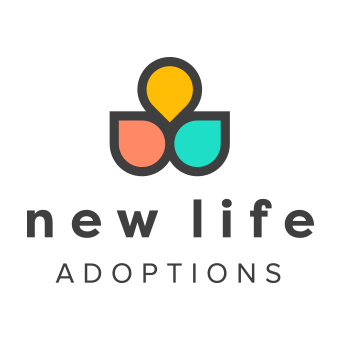“Do you think you can love an adopted child like you would a biological child?”
“You’re so lucky you were adopted!”
“Why would you give away your flesh and blood?”
These are all examples of some of the stigmas our clients hear about adoption. Although stigmas apply to each party in the adoption triad, birth parents often receive the “short end of the stick” when it comes to support due to the negative stigmas attached to their decision. This is even further directed towards birth fathers who are often unrecognized, unacknowledged, and unsupported by their community – which can even be seen in the lack of research conducted on birth fathers’ grief post-placement.
Although stigmas apply to each party in the adoption triad, birth parents often receive the “short end of the stick” when it comes to support due to the negative stigmas attached to their decision.
Stigma is defined as “a mark of disgrace associated with a particular circumstance, quality, or person”. Read that again – a mark of disgrace. As an Expectant Parent Social Worker, this is the last thing I want my clients to feel when they are making a loving, selfless and difficult decision to place their child for adoption. However, many expectant parents hesitate to tell others about their adoption plan. Those choosing adoption for their child(ren) often feel a sense of shame when it comes to their decision. Expectant parents know the choice they are making is out of love and that they are choosing what they believe is best for their child. So, why do they feel this way?
The short answer is that these feelings are spurred on by the stigma and assumptions from society. Stigma towards adoption comes from years of misguided and misunderstood information. It often comes from outdated information persisting despite the many positive changes in adoption over the years. Adoption in the 1960s looked very different than adoption in 2020, yet the stigmas from history and outdated mindsets bleed into society’s view towards adoption today.
Expectant parents know the choice they are making is out of love and that they are choosing what they believe is best for their child.
When it comes to stigma, unfortunately, birth mothers voluntarily choosing to relinquish their parental rights often find little support available as their loss is viewed as a choice. Therefore, society has assumed that birth mothers will not, and should not, experience these emotions of grief because they essentially knew what they were choosing (Impact of Adoption on Birth Parents, 2013). The end result may be a sense of guilt and shame for birth mothers, and this stigma does not allow them to process the grief they are experiencing. Why might they not share their stories with others? Below are some examples of responses my clients have heard after sharing this part of their lives:
“You must not love your baby”
“I could NEVER do that”
“Adoption is not taking responsibility for your actions”
“How could someone else love your baby like you could?”
Do any of these statements sound familiar? How do we change a stigma if it is built on years of inaccurate information and assumptions? Change does not happen overnight. It starts with each person taking the time to learn about adoption and then share that information with others.
What we can do?
Understand who birth mothers are:
When you think of a birth mother, are there certain stereotypes that come to mind? We all have an image of who we think a birth mother is, but this image is not always based on the truth. A lot of stigma comes from a lack of understanding about who makes an adoption plan for their child. You may think of a certain age group or economic population, but in reality, there is no such thing as a “typical” birth mother. At New Life, we work with women and men of all ages and backgrounds; this includes, but is not limited to, first time parents, single parents who are already caring for one or more children, married couples, young women, college students, adults. We also find that birth parents make adoption plans for their child(ren) for a variety of reasons. To assume the “type of person” who makes an adoption plan or the reason they are doing so is doing them a disservice.
Use Correct Adoption Terminology:
The words we use matter. When you think about a birth parent, do the phrases, “she put up her child for adoption” or “she gave up her child for adoption” come to mind? These are outdated and inaccurate phrases. In 2020, birth mothers have a lot of say and control in their adoption choices. They are not simply “giving up” their child. It is an intentional, planned decision that takes a lot of time and work.
Educate yourself about the experience:
Birth mothers go through a wide variety of emotions both during and after the adoption process, but grief is often the most common emotion. Despite the knowledge that birth mothers need to work through their grief, there is little publicly known about the feelings related to an adoption. The majority of people in society have not experienced placing a child for adoption and are not able to relate to or support a birth mother through this process. Those outside of the adoption triad need to learn more about these common feelings of grief in order to better understand and support birth parents both during and after the adoption process. One way to learn more is to check out different websites that share birth parents’ stories. This can help show the reality of the adoption process for birth parents and the emotions involved.
A simple, “How are you doing? I can imagine this is not an easy time for you,” could be a great sentence to get you started.
Additionally, validating a birth mothers’ feelings and emotions can help support her in the adoption process. If you know someone who has made an adoption plan, simply acknowledging and saying to a birth mother that grief after placement is normal could make a difference. She may need the freedom to discuss and share her feelings in order to move forward and not grieve alone, but she may not do so without permission to discuss it. A simple, “How are you doing? I can imagine this is not an easy time for you,” could be a great sentence to get you started.
It can be difficult to empathize with someone when you might not understand what they are going through. It’s OK to not know what to say and to even acknowledge that. Having an open heart and ears simply to listen may be enough. Here are some other practical ideas for supporting birth parents:
- Read stories or watch videos that share birth parents’ adoption stories. Check out our Birth Parent Stories page or BraveLove’s website.
- If someone tells you that they are making an adoption plan or have placed their child(ren) for adoption, try using open-ended questions to understand their story, such as “will you tell me about your adoption story/” Then take the time to truly listen and seek to understand.
- If a birth mother shares about any of the emotions she is experiencing on her adoption journey, validate how she is feeling. Acknowledging and normalizing her experience can go a long way.
- Share what you have learned with others. None of us can address the stigmas of adoption in our society on our own. It takes a community of people coming together to share the truth about adoption to help fight against this misinformation that is all too common.
Birth parents are some of the most selfless and loving people I have ever met. The courage and love they have for their child is amazing and something truly worth admiring.
Birth parents are some of the most selfless and loving people I have ever met. The courage and love they have for their child is amazing and something truly worth admiring. To not feel supported or understood by society, on top of walking through a situation that is already challenging, can be incredibly difficult. Change is hard, but together, we can all work to fight against these stigmas in adoption, for all parties in adoption, but especially for birth parents.
References
Birth Parents, and Families After Adoption (Rep.). National Council for Adoption. Impact of Adoption on Birth Parents. (2013). Child Welfare Information Gateway.
Claridge, A. M. (2014). Supporting Birth Parents in Adoption: A Couple Treatment Approach. Adoption Quarterly, 17(2), 112-133. doi:10.1080/10926755.2014.891545
Cortes, S. A. (2012). Birth Parents in the Adoption Process: Experiences with Voluntary Relinquishment. National Resource for Permanency and Family Connections.




